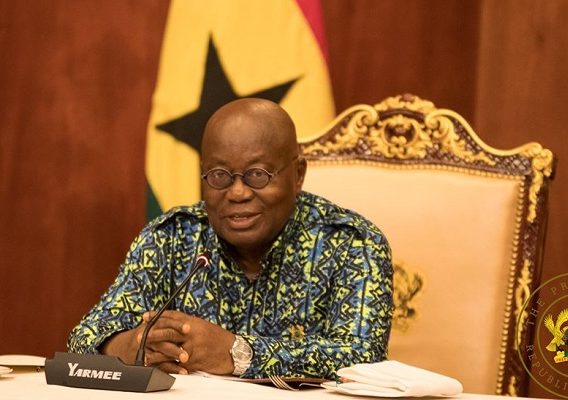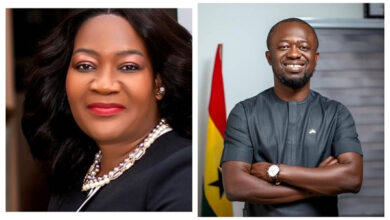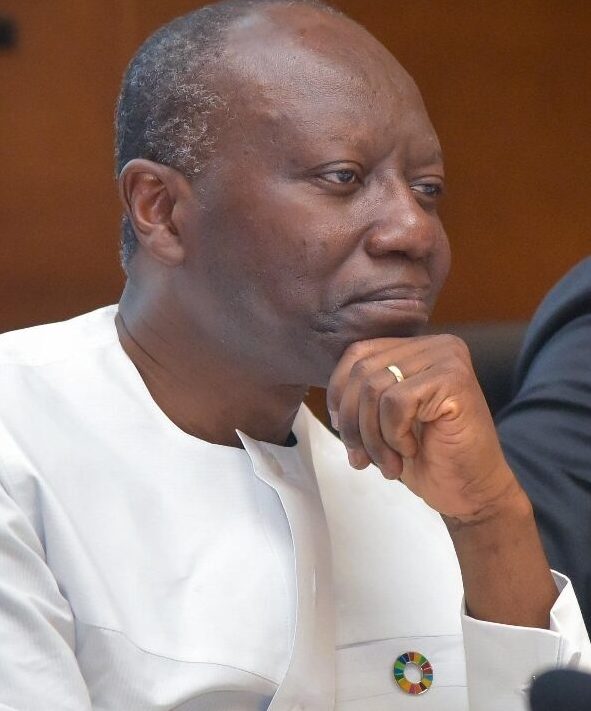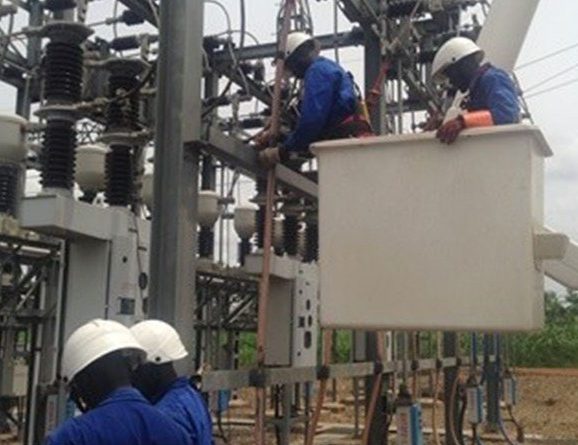New taxes, tax cuts clash in 2021 budget
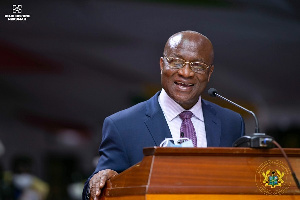
In an effort to achieve direly needed fiscal consolidation while at the same time providing equally greatly needed stimulus to the economy, the President Nana Akufo-Addo administration has unveiled 2021 national budget proposals that comprise a curious combination of tax rebates and newly introduced levies.
While the new levies have irked various stakeholder groups who are questioning the timing of their introduction, government’s strategy appears to be to use them to bridge a fiscal deficit that has to be narrowed while it puts in place the institutional and procedural frameworks that will allow them to be replaced with revenues from a widened tax net that leverages the Ghana Card and tax identification number architecture as well as digital addressing to tax the informal sector and properties.
Altogether, government is aiming at total revenue and grants for 2021 of GH¢72,452 million, equivalent to 16.7 percent of Gross Domestic Product (GDP), up from an outturn of GH¢55,132 million, equivalent to 14.3 percent of GDP recorded in 2020.
The Domestic Revenue is estimated at GH¢70,987 million in 2021 and represents an annual growth of 31.7 per cent over the recorded outturn for 2020.
The Minister of Parliamentary Affairs, Osei Kyei-Mensah-Bonsu, who presented the 2021 Budget Statement to Parliament, said of the total Domestic Revenue and Non-oil Tax Revenue would constitute about 74 percent, amounting to GH¢53,632 million.
This is equivalent to 12.4 percent of GDP, reflecting the impact of expected improvements in tax compliance and reforms in revenue administration.
Wages and salaries are projected to amount to GH¢25,799 million and will constitute 22.7 percent of total expenditure, inclusive of arrears clearance, for 2021. This amounts to 5.9 percent of GDP for 2012, compared with 6.6 percent recorded in 2020.
The use of goods and services is projected at GHc5,967 million or 1.4 percent of GDP, representing 5.2 percent of planned total expenditure. Interest payments are projected at GHc35,864 million, equivalent to 8.3 percent of GDP in 2021 and of this, domestic interest payments will account for 79.1 percent, amounting to GHc28,368 million.
Transfers to statutory funds as well as all other earmarked funds are estimated at GHc18,081 million, or 4.2 percent of GDP, representing 52.2 percent growth over the recorded outturn for 2020.
Capital expenditure is projected at GHc11,423 million, or 2.6 percent of GDP in 2021, a decline of 5.5 percent from the 2020 outturn. Of this amount, domestic financed capital expenditure is estimated at GH¢3,310 million and foreign-financed capital expenditure will amount to GH¢8,112 million, funded through a combination of project loans and grants.
The theme for the 2020 Budget is: “Consolidation, Completion and Continuation,” subtitled “W0N YA WO HI33” Budget, to wit “we are moving forward”.
Mr Kyei-Mensah-Bonsu has tried to explain the fiscal tightrope government is walking this year saying that while government recognizes that as a result of the impact of COVID-19, times were hard for many people, however, it was important that the Government rebuild and strengthen public finances to provide the resources needed to protect lives and livelihoods, deliver critical government services, support the transformation of the economy, and ensure fiscal and debt sustainability.
Ghana’s economy is projected to grow by around 5% in 2021, while inflation is expected to return to its targeted band of 8% plus or minus 2 percentage points.
The fiscal deficit is seen at 9.5% in 2021, down from 11.7% the previous year.
“The 2021 budget outlines the President’s programme for accelerated recovery from the devastating impact of the COVID-19 pandemic,” Bonsu said.
“It explains our plans to emerge stronger by pressing on with economic transformation, strengthening our social compact and building a sustainable future.
He warned however that the country was not out of the woods yet, and would need to control spending while increasing its tax base to collect more revenue.
The government also targets to achieve a gross international reserve equivalent to four months of import cover.
Government will be introducing a Covid-19 Health Levy of 1% on VAT, Flat Rate Scheme (VFRS) and a 1% on National Health Insurance Levy (NHIL) as part of revenue measures to help the economy recover.
Osei Kyei Mensa Bonsu said the levies will be used for the procurement of vaccines and establishment of 14 medical waste treatment facilities.
The Parliamentary Affairs Minister said the levy “will also assist in the construction of 33 major health projects, the recruitment of more health professionals and agenda 111.”
He said the Covid-19 pandemic has caused additional health spending that far exceeds the annual budget for health.
“To provide the requisite resources to address these challenges and fund these activities, government is proposing the introduction of a Covid-19 Health Levy of a one percentage point increase in the National Health Insurance Levy and a one percentage point increase in the VAT Flat Rate to support expenditures related to Covid-19,” he said.
The 2021 budget outlines actions that are being implemented by government to address this pandemic.
He highlighted the procurement of vaccines, the first batch of 600,000 doses from the COVAX Facility which has already been delivered and an additional 17.6 million vaccine doses to be delivered by June, with more to come in the course of the year.
But the fiscal framework to be employed to achieve its targets are bound to generate fierce controversy over the coming weeks, both within Parliament as it assesses the budget proposals and ultimately approves the appropriation bill that is needed to implement it, and among economists, public policy analysts and stakeholders around the country.
On the upside Government has announced the suspension of quarterly vehicle income tax during the third and fourth quarters of the year for operators of commercial public transport popularly called trotros and taxis.
This the Caretaker Finance Minister Osei Kyei-Mensah-Bonsu said is aimed at reducing the cost of transportation under its tax relief program.
The Suame MP also announced a tax rebate of 30 per cent on the income tax due for companies in hotels and restaurants, education, arts and entertainment, and travel and tours for the second, third and fourth quarters of 2021.
For operators of small businesses using the income tax stamp system, government is suspending their quarterly income tax instalment payments for the second, third and fourth quarters of 2021. There is also an extension of waivers of interest on accumulated tax arrears as an inventive to pay them off early although to be eligible, the first quarter tax obligations must have been fulfilled.
In 2021 the Ghana Revenue Authority (GRA) will intensify audits and institute measures to recover all outstanding debts and enforce collections in the extractive industry.
The caretaker Finance Minister said a study of the downstream petroleum sector indicated there was still the challenge of under-reporting and evasion of taxes by some industry players.
The Minister said the GRA in conjunction with the relevant agencies would mount a campaign to deal with the unlawful acts.
On Gaming Policy, he said gaming had become a major income earner all across the globe and a significant source of government revenue.
Mr Kyei-Mensah-Bonsu said the influx of online betting and automation of the once totally manual process had changed the character of revenue sources from that industry.
“It is estimated that Ghana loses over GH¢300 million annually in revenue due to leakages in the sector,” he said.
The Minister said the ministries of Finance and the Interior would co-supervise the gaming industry and would soon consult with stakeholders to formulate a comprehensive policy to improve revenue mobilisation from that source.
Source: Goldstreet Business

